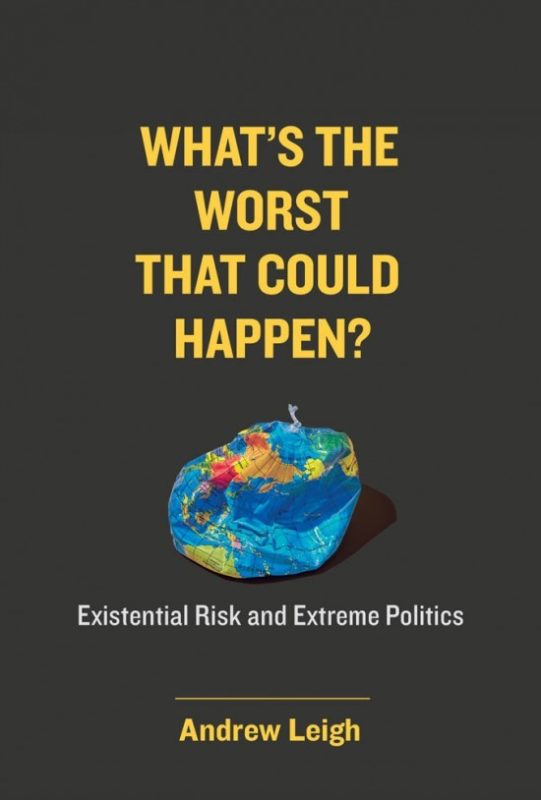What’s the Worst That Could Happen? Existential Risk and Extreme Politics by Academy Fellow and Federal Member for Fenner Dr Andrew Leigh MP focuses on potentially world-ending threats, including nuclear war, climate change, bioterrorism and unaligned artificial intelligence.
by Academy Fellow and Federal Member for Fenner Dr Andrew Leigh MP focuses on potentially world-ending threats, including nuclear war, climate change, bioterrorism and unaligned artificial intelligence.
It’s a blend of Dr Strangelove, The Matrix, 28 Days Later, and Blade Runner 2049, with a riff on the risks of populism.
What’s the Worst isn’t just about the problems, it’s also about the solutions. Modern politics focuses excessively on short-term challenges, foregoing opportunities to alleviate catastrophic dangers.
Existential risks aren’t trivial. If there’s a one in six chance that humanity could be wiped out in the coming century, that means that the typical Australian is fifteen times more likely to die as a result of a species-ending catastrophe such as nuclear war than to be killed in a car crash.
What’s the Worst examines how the risks of these disasters are amplified by populist politics, which feeds off anger and division. Populism makes it harder to do the kinds of things that are necessary to reduce existential risk – such as listening to experts, building effective institutions, taking a calm approach, and collaborating internationally.
Reviews
“Ever since the first atom bomb was exploded, humans have faced the possibility of existential risk—and that risk is clearly growing, both because we’ve unleashed strong physical forces and because our politics has grown ever more short-sighted. This book makes the powerful case that we need to replace populism with clear-headed thinking that takes a long view; it’s in our own interest, and the interest of all the generations that we hope will follow.”
Bill McKibben, author of Falter: Has the Human Game Begun to Play Itself Out?
“The book is not only a catalog of doomsday prognoses, it is a clarion call for improving political institutions and strengthening democratic norms. Andrew Leigh calls it ‘fixing politics,’ and his suggested measures to protect a well-functioning democracy should be widely read by lawmakers as well as civil society. We may all have developed tunnel vision during the pandemic, but this thoughtful book will help us see at last some light at the end of it.”
Angela Kane, former UN High Representative for Disarmament Affairs
